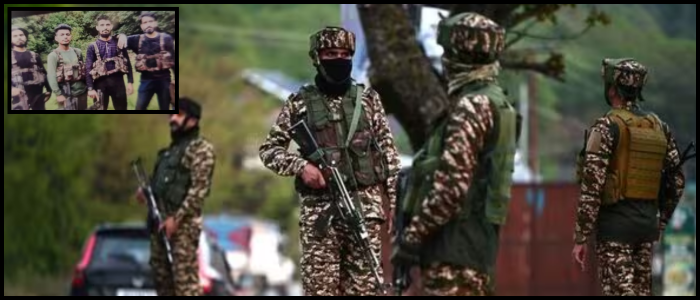The NIA, which is now probing the case, disclosed this development after the arrest of two local individuals for renting out their place to the perpetrators. The detained men had kept the militants in a seasonal hut before their assault that killed 26 people at the tourist hot-spot of Baisaran, Indian forces said.
Pakistan has not formally responded to the latest allegations, but it had previously rejected any role in the attack. The raid provoked a significant escalation between the two nuclear-armed neighbours that have fought three wars over Kashmir.
Escalating Tension After April Attack
The attack sent shock waves across India and led to a huge security crackdown across the country. Thousands of people across Kashmir were rounded up for questioning during an aggressive search and combing operation. The three assailants remain at large despite the arrest of the suspected facilitators.
The attack, initially claimed by a relatively unknown group, The Resistance Front (TRF), is said to be an offshoot of Lashkar-e-Taiba, a terror group based in Pakistan. But the group then walked back to its position.
In the days after the violence India scrapped a decades-old water-sharing agreement with Pakistan, and one that was inked before India first tested a nuclear weapon, the 1960 Indus Waters Treaty. Pakistan subsequently withdrew from the 1972 Simla Agreement, which advocated for the peaceful resolution of disputes through bilateral negotiations.
Offensive and Pause in Fighting
On May 7, Indian jets dropped bombs and missiles on what it called "terror infrastructure" in Pakistan and Pakistan-administered Kashmir. Pakistan denied the charges, saying there were no terror camps in the area that was targeted. It responded with missile strikes and deployed drones inside Indian territory.
This back-and-forth firing led to concerns of a larger conflict, but tensions began to calm down after May 10, when US President Donald Trump announced that the two countries had agreed to a ceasefire.
The situation is still volatile, and Indian authorities are searching for the assailants as the investigation moves ahead.
Top

India: All Pahalgam Attackers Were Pakistani Nationals

Indian investigators now say that all three of the men who carried out the April 22 attack, near Pahalgam in Indian-controlled Kashmir, were from Pakistan and members of the group, Lashkar-e-Taiba, which is banned by the United Nations. That represents a change from the earlier reports, which had said police knew two of the attackers were Pakistani and the third was an area resident.











